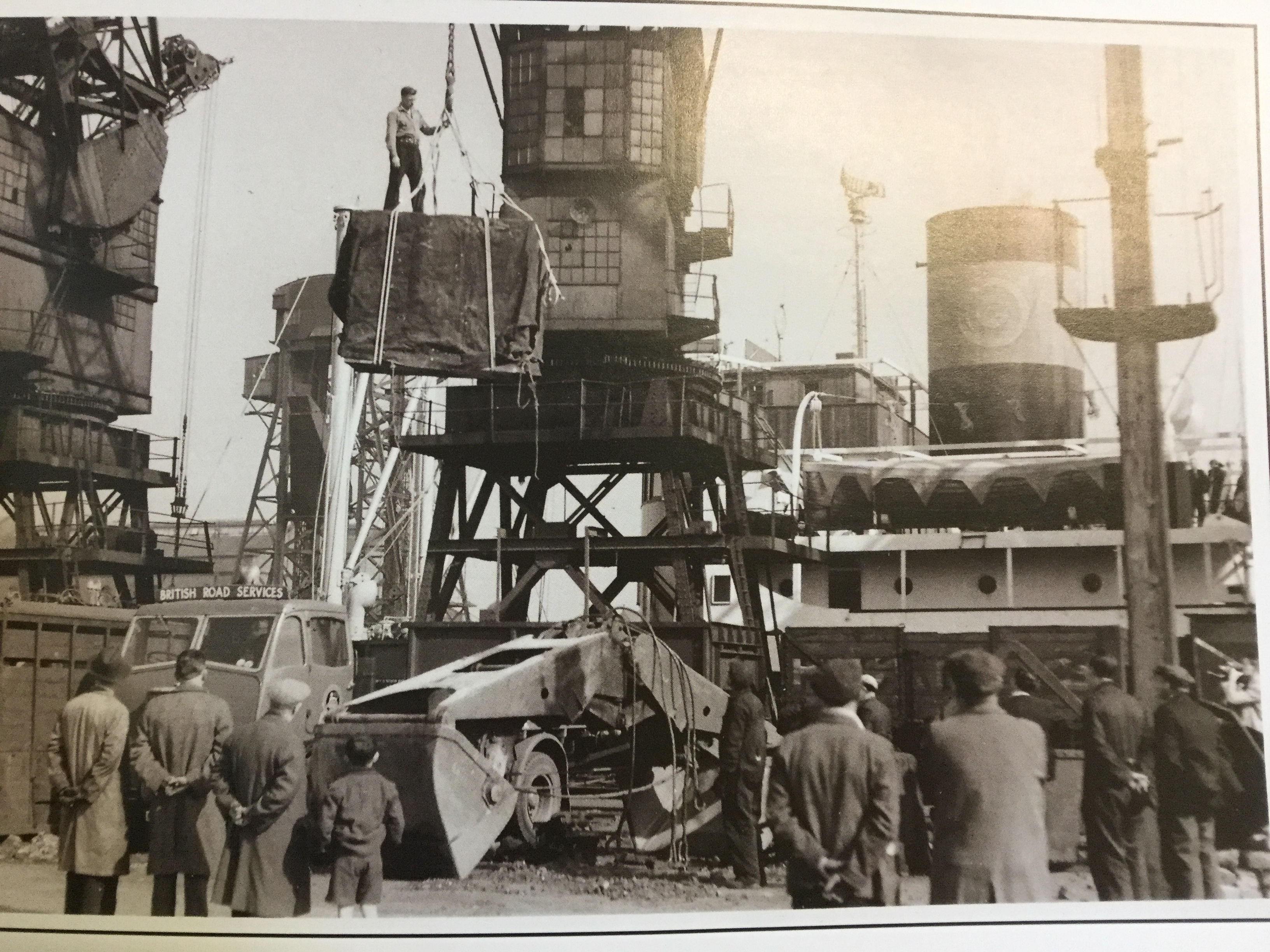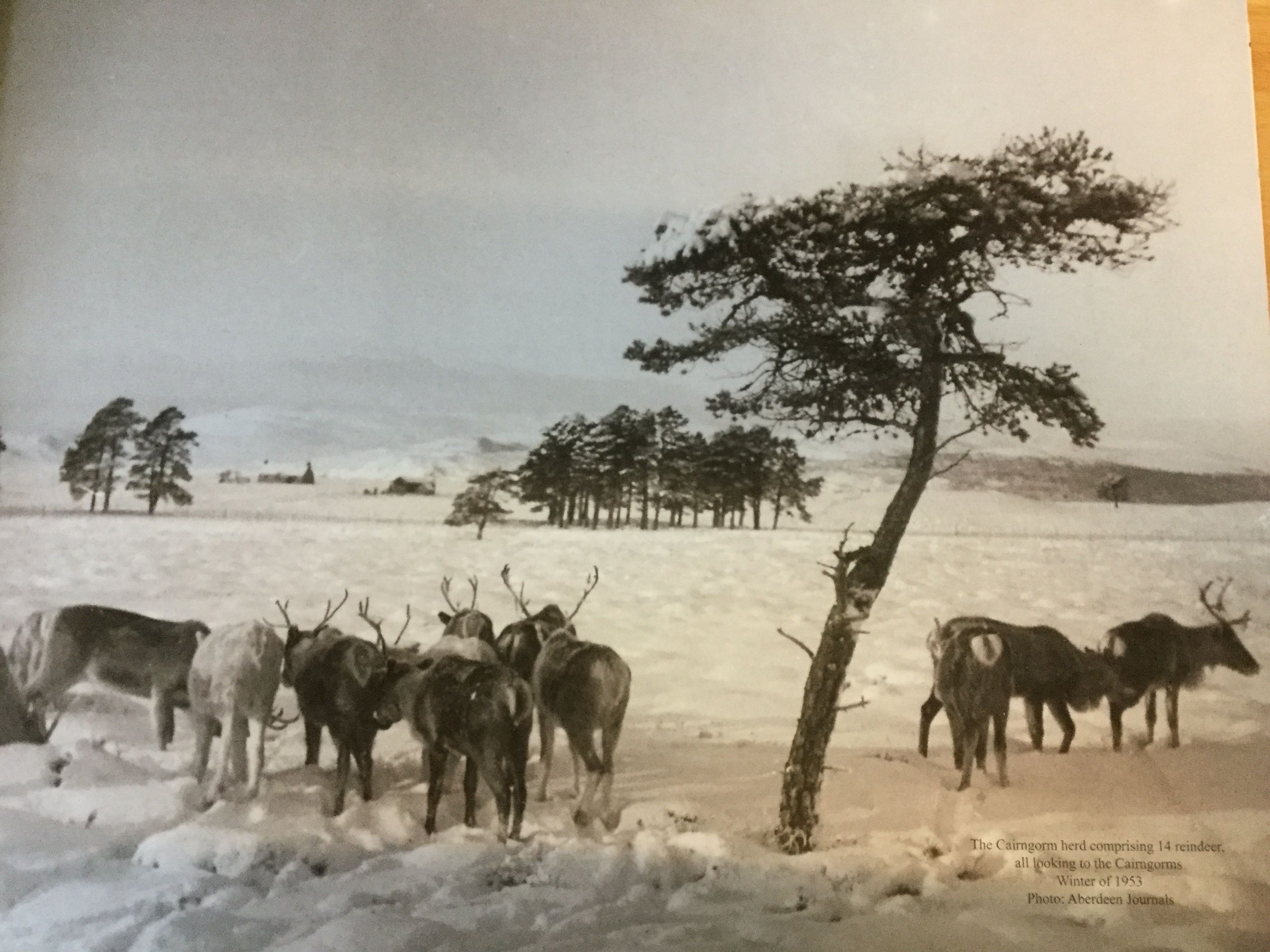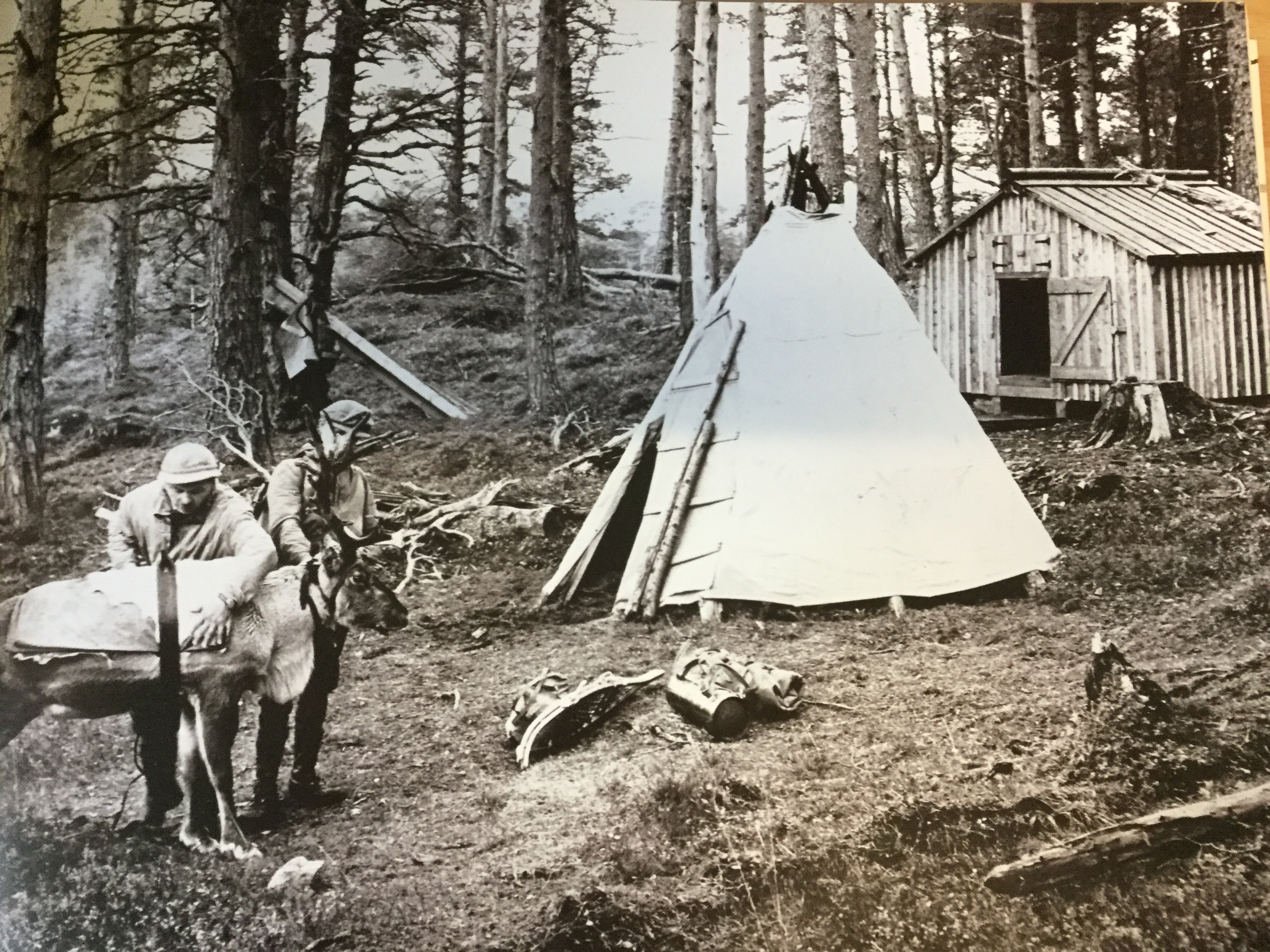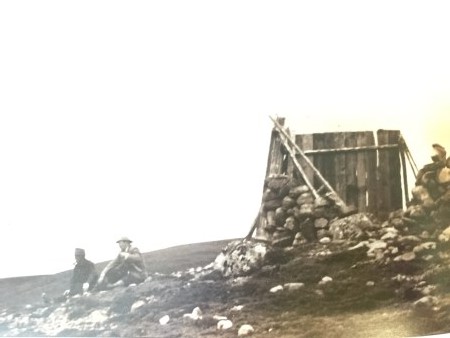2017 is our 65th anniversary, and just lately I’ve been trawling through the records of the reindeer herd for one reason or another. As such I’m feeling a bit nostalgic, and think it is time I started another occasional blog series, this time about the history of our herd.
If you’ve been on a Hill Trip with us, you may know the basic story. Sami reindeer herder Mikel Utsi visited the Highlands of Scotland in 1947, and was immediately struck by the similarities to his homeland of northern Sweden.

“Looking across Rothiemurchus Forest to the Cairngorms from the railway bridge at Aviemore, on a cold morning in April 1947, I was instantly reminded of reindeer pastures. Travel in the Highlands showed that many species of ground, rock and tree lichens which are elsewhere the chief reindeer food were plentiful and of little use to other animals. Red deer and domesticated animals graze on plants and fodder than reindeer seldom eat. The Orkneyinga saga tells us that about 800 years ago red deer and reindeer were hunted together, in Caithness, by the Jarls of Orkney.”

Mikel Utsi decided it was time that reindeer once again roamed the mountains of Scotland, and five years later, that dream became a reality. The Ministry of Agriculture gave permission for Mr Utsi and his Swedish-American wife Dr Ethel Lindgren (an anthropologist who had studied in China and Mongolia as well as Swedish Lapland) to bring the first consignment of reindeer over to Scotland, and at first they were granted an area of around 300 acres near Moormore in the Rothiemurchus forest, which was completely fenced to contain them. Moormore is now better known as the Cairngorm Sleddog Centre. Mr Utsi knew this was not ideal for the reindeer however, and had his eye on the higher ground of the Cairngorms themselves – much more suitable reindeer habitat.


The first consignment of 8 reindeer landed at Clydebank in Glasgow on the 12th April 1952, having travelled on the S.S. Sarek from Sweden, which had been somewhat rough four day crossing. The group consisted of two bull reindeer (Aviemore and Murjek), four cows (Mona, Kristina, Margaret and Rowena), and a castrated male who was named Sarek. After a month in quarantine at Edinburgh Zoo, the reindeer finally made their way north to the Cairngorms to the Moormore enclosure.


It wasn’t a particularly auspicious start, with the reindeer struggling to cope with the low ground and the insects, but in 1954 Mr Utsi finally got permission from the Forestry Commission to lease Silver Mount, which many of you will know as the hill at the far end of the current reindeer enclosure, the back drop to the majority of our guided tours throughout the year. Later the same year free-grazing up to the summits of the northern corries of the Cairngorms was finally allowed, as well as the continued use of the Silver Mount enclosure. Finally the reindeer could escape the insects and the herd began to thrive. Further groups had been introduced from Sweden too; Inge, Alice, Anne, Pelle, Assa, Ella, Ina, Maja, Siri and Tilla in October 1952; Nuolja, Kirtik, Ranak, Neita, Noki, Rovva and Vilda in early 1954. Bulls Fritzen and Ruski followed in 1955.


To keep a closer eye on his herd, Mr Utsi felt it was important to be on site as much as possible. He made a hut at ‘Road End Camp’ in the 50s, tucked away in the woods at the base of Silver Mount, building it from the wood from the crates that the reindeer had been transported to Scotland in. This made life much easier as there was no bridge across the Allt Mor at that time, or indeed, a road up to where the Ski Centre is now, so for Mr Utsi the herd was now much more accessible. Today, the hut still stands, and some of you may have even been there – in recent years we used to stop for a rest at Utsi’s Hut on some of our half-day treks with visitors. A shelter was also built at the top of Silver Mount, and although this no longer stands, there are still a few old, weathered, pieces of planks lying around up there, which are the last remnant of the shelter.



By the mid-fifties the herd had grown to around 20 animals, and the herd was doing well. There’s lots more to tell you, but it’s a story for another day! However, if your appetite to learn more of our history has been whetted, we have a lovely book called ‘Hoofprints’ in our online shop on our website which is all about the history of the herd with loads of beautiful photos, so pop over there for a wee look.
Hen

One Reply to “Looking back: The arrival of the first reindeer”